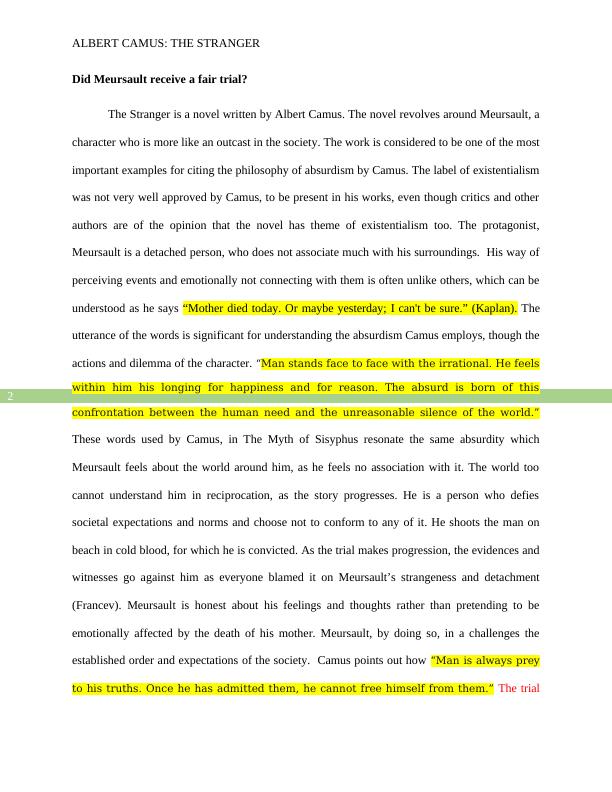Existentialism is a philosophical movement that emerged in the 20th century, focusing on the individual's experience of freedom and responsibility in a seemingly meaningless and absurd world. One novel that exemplifies the tenets of existentialism is "The Stranger" by Albert Camus.
The main character in "The Stranger," Meursault, is a young man who lives in Algiers and works as a clerk. He is described as emotionally detached and indifferent to the people and events around him. When his mother dies, he does not display any signs of grief or sadness, and when he is later accused of murder, he shows no remorse or guilt.
Meursault's detachment and lack of emotion can be seen as a reflection of his existentialist beliefs. Existentialists believe that individuals are responsible for creating their own meaning in life, and that this meaning is subjective and personal. Meursault's detachment from the expectations and emotions of society can be seen as a rejection of the prescribed meaning of life that is imposed upon him.
In "The Stranger," Camus also explores the concept of absurdity, which is central to existentialist philosophy. Absurdity refers to the inherent meaninglessness of life, and the fact that individuals must confront this meaninglessness head on. Meursault's trial and execution can be seen as an example of this absurdity, as he is punished for a crime that he does not feel guilty about, and that seems to have no real significance in the grand scheme of things.
Another key aspect of existentialism is the concept of freedom and choice. Existentialists believe that individuals have the freedom to make their own choices and shape their own lives, and that this freedom can be both a source of joy and a burden. Meursault's choices throughout "The Stranger" reflect this belief, as he makes decisions that go against societal norms and expectations, and ultimately pays the price for his freedom.
In conclusion, "The Stranger" by Albert Camus is a prime example of existentialist philosophy, as it explores themes of meaninglessness, absurdity, and freedom in the context of an individual's experience. Through the character of Meursault, Camus illustrates the challenges and responsibilities that come with living in a seemingly meaningless world, and the importance of creating one's own meaning and purpose in life.







